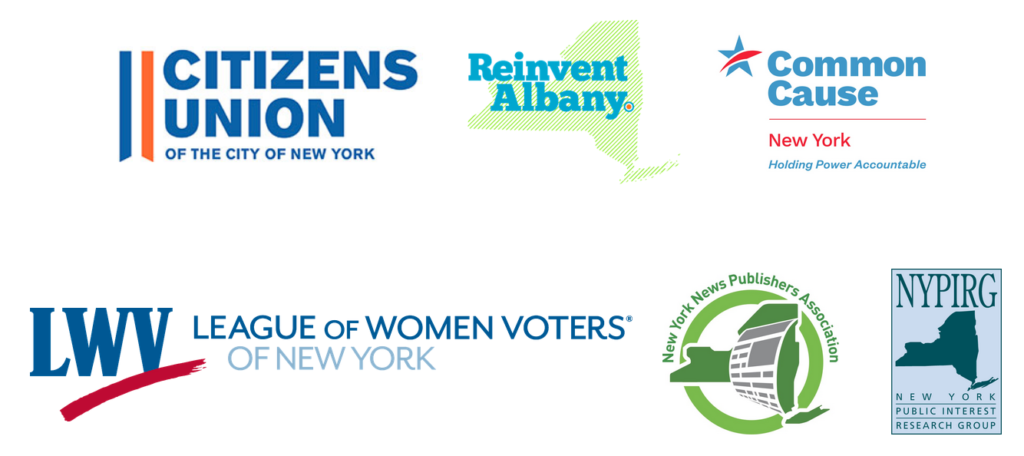Groups Urge Chapter Amendment for Bill Amending Definition of “Public Body”
PROPOSAL FOR CHAPTER AMENDMENT
A924-A (Paulin)/S1625-A (Skoufis)
Our groups urge Governor Kathy Hochul to propose a chapter amendment for A924-A/S1625-A before signing it into law. The bill’s sponsors, Senator James Skoufis and Assemblymember Amy Paulin, have told us that they are open to a chapter amendment. We request the chapter amendment because we believe that as written, this bill would weaken the Open Meetings Law (OML) and result in less transparency for public bodies in New York State.
This bill attempts to clarify that entities created to perform government functions are subject to OML. The bill amends the definition of “public body” to include “an entity created or appointed to perform a necessary function in the decision-making process.” However, the bill’s A-version added language stating that government-created entities publishing guidance that is “purely advisory and which does not require further action” by the government shall not be defined as “public bodies.”
We believe this new definition would omit some important entities that are currently subject to the Open Meetings Law. For example, the 2018 MTA Sustainability Advisory Workgroup had an important role in recommending sustainable funding options for the MTA such as congestion pricing. But though it was established in statute through the FY 2018-2019 state budget, the workgroup was “purely advisory” and its recommendations were not required by law to trigger further action. However, the Committee on Open Government (COOG) stated in a 2018 advisory opinion that because the Workgroup was established in law, it was subject to OML. This very likely would not have been the case had the law been written as this bill currently proposes.
We have attached a proposed chapter amendment that would clarify the bill’s language in a way that is consistent both with the bill’s intent and with case law. The language we propose is taken verbatim from a frequently cited 1999 court decision, Smith v. CUNY, which states that a public body is subject to OML if it is “a formally chartered entity with officially delegated duties and organizational attributes of a substantive nature.” In other words, entities that are established in law are subject to OML, but OML does not necessarily apply to ad hoc bodies created outside the legislative process. This decision was also cited in the aforementioned COOG advisory opinion.
Adopting the attached language via a chapter amendment will ensure that A924-A/S1625-A is a step forward for transparency, rather than a step back. Again, we ask that Governor Hochul please propose a chapter amendment before signing the bill.

